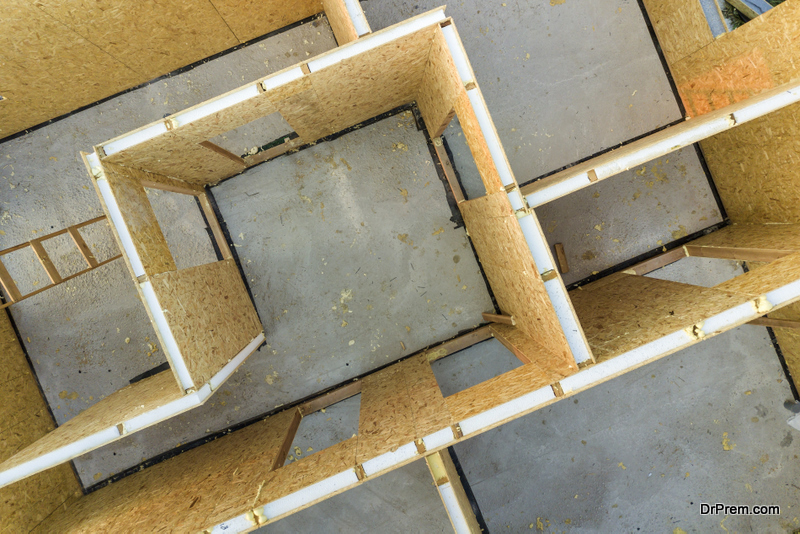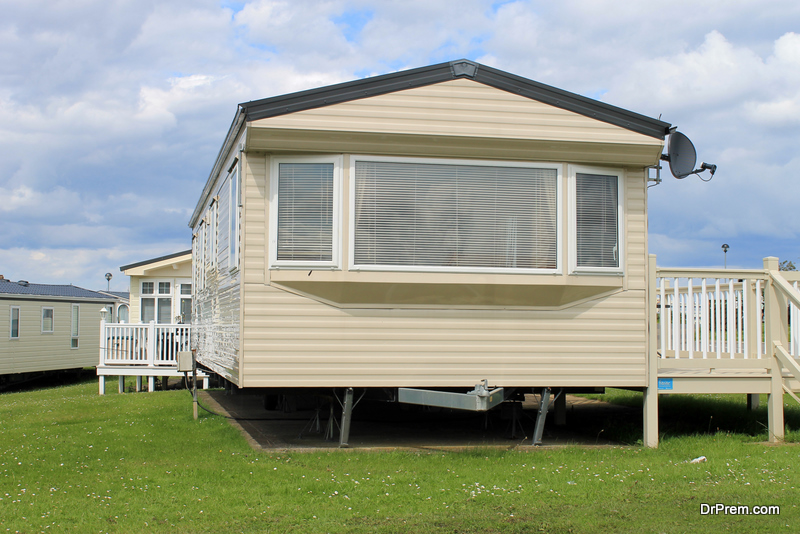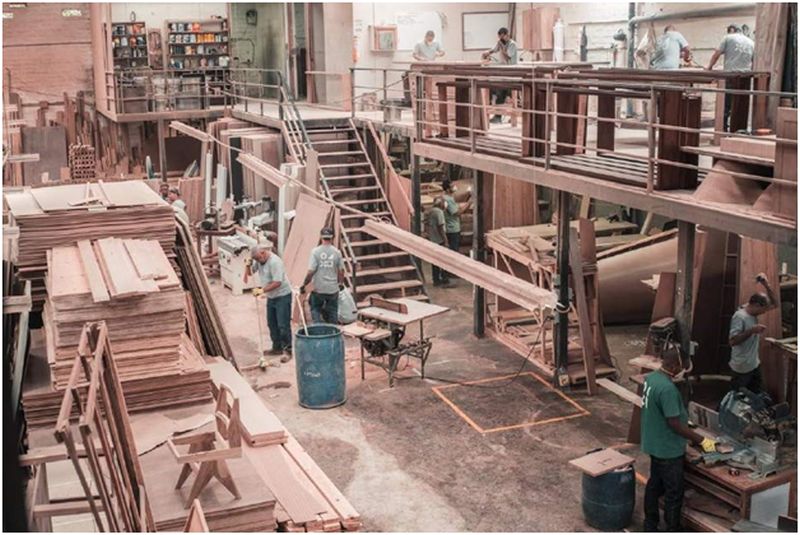Homeownership has long been associated with the American dream. When it comes to purchasing a home nowadays, there are a plethora of options. There is a home for everyone, from a simple apartment to an imposing mansion. Manufactured homes are one of the options offered to home buyers in the U.S.
Manufactured homes are typically far less expensive than traditional site-built homes, and are particularly appealing to young families just starting or retirees looking to downsize. When it comes to cost, the advantages of purchasing a manufactured house often outweigh those of renting.
What is a Manufactured Home?

A manufactured home is a dwelling unit made in a factory and then transported to a site and permanently installed in that location.The “HUD Code,” as it is commonly known, establishes construction and quality criteria for all structures classified as manufactured houses in the U.S. The “HUD Label,” which is found on each piece of a manufactured home, provides an identification number for the unit.
Before June 15, 1976, factory-built houses were correctly referred to as “mobile homes.” However, the contemporary term is a better fit because today’s buildings are not truly mobile. They are transportable from the factory (in one or more portions), but once installed, they are permanent.
These dwellings may be a single unit or a series of modules that are shipped separately and assembled on-site. They will also be connected to local power, water, and sanitary facilities. They can be permanently affixed to a foundation, or their underlying chassis can be “skirted” by blocks or siding to make them practically indistinguishable from traditional-built residences.
Although they are still referred to as mobile homes, modern manufactured homes, notably bigger types, are rarely moved once delivered. So if you believe that a manufactured home is the best option for you—before you make a final decision, consider the top reasons why people choose manufactured houses.
1. Flexibility
Manufactured homes of today are not the same as mobile homes of the past. Today’s buyers can select from a wide range of floor plans, facades, amenities, and options, as well as unique and flexible customizing elements. Great room concepts, island kitchens, soaring ceilings, skylights, and flex rooms are all features of open floor plans. Manufactured homes are no longer limited to a single level. They come in split-level and two-story designs with garages, decks, and porches.
Manufactured homes come in a variety of sizes. Following the trend of tiny houses, they can accommodate designs ranging from 500 square feet to over 5,000 square feet. The positioning of your manufactured home is also flexible. Vacation homes, rural acreages, and development lots are examples of owner-provided lots. Manufactured home communities offer the most flexibility in terms of placement, layout, and facilities.
2. Customized Designs
When it comes to manufactured houses, you’ll appreciate the ability to make your dreams come true by picking customized amenities that make your house a home. Modify the outside style or roof line so that the end design makes your heart sing, and then create a kitchen that appeals to your inner chef, baths that soothe your spirit, and built-ins to ensure that every area of your life at home is enjoyable. You will then be able to select a floor plan that is appropriate for the way you want to live and the colors, materials, and other amenities that you desire.
3. Sustainability
Manufactured homes are more energy-efficient than most conventionally built homes because of tight assembly line construction standards and quality control systems. These homes provide a housing choice that not only uses less building waste and resources than traditional homes, but they can also be outfitted with sophisticated, eco-friendly features such as low-E windows, programmable thermostats, cool roofs, enhanced insulation, and much more.
4. Value Appreciation
Unsurprisingly, market conditions have a significant impact on home values. Nonetheless, many individuals assume that the value of manufactured homes will never grow. Indeed, some people believe that manufactured homes devalue with time.
A manufactured home is similar to any other type of housing. Manufactured homes, like site-made homes, often rise in value when properly built and maintained. Because modern manufactured homes are well-built and have excellent curb appeal, their market value rises when home values rise in a given location.
5. Affordability
A manufactured home is significantly less expensive than a traditional site-built home. A report produced shortly after the turn of the century by the Millennial Housing Commission identified manufactured housing as one of the “biggest sources of non-subsidized housing in the nation.” A manufactured home costs $49 per square foot on average, compared to $107 per square foot for a traditional home built on-site.
The absence of land prices and maintenance requirements in a manufactured home in a neighborhood developed solely for mobile homes significantly reduces the cash outlay in completing a typical building project. Land costs can occupy up to half of the overall house development budget in various areas. A manufactured home situated in a developed community, whether funded or not, can offset up to half of the costs.
6. Aesthetically Pleasing
Modular buildings were once intended for temporary shelters, such as construction, trade, or education. However, modular homes are already thriving throughout the country. Because of better manufacturing methods along with aesthetic and practical elements, these prefabricated buildings can now compete with traditional architecture.
Carpeting, vinyl, cabinets, countertops, faucets, siding, wall panels, and other decorative options are available. There is a look for everyone. However, because styles vary every few years, a homebuyer should not place too much importance on the looks of a new home.
7. Growing Popularity
When you hear the term “manufactured home communities,” you generally envision a trailer park by the side of a highway. Contrary to popular belief, manufactured homes are not movable, and they do not resemble what you are picturing. The Manufactured Housing Institute estimates that 22 million individuals in the U.S. live in manufactured homes.
Across the country, there are over 8.5 million prefabricated houses in approximately 40,000 manufactured housing communities. Over the last five years, the manufactured home proportion of single-family homes has risen across the country when compared to site-built homes. Recently, the number of manufactured homes developed and sold in places like Florida, South Carolina, North Carolina, and Georgia has increased significantly.
In reality, one out of every five homes sold in Florida is factory manufactured, according to estimates.
Manufactured houses are subject to rigorous inspections regularly and must adhere to the U.S. Department of Housing and Urban Development criteria. Since those guidelines were implemented, the quality of factory-built homes has greatly improved, alleviating some of the previous concerns that people had about them.
Considerations When Owning a Manufactured Home

The benefits of purchasing a manufactured home are its reduced cost and the relative ease and speed it can be set up. With today’s double- and triple-wide homes, you won’t have to give up much in terms of style, floor space, or amenities.
A manufactured home also allows you to eventually transfer it to a new place with relative simplicity, though most manufactured homes today are designed to stay put. While purchasing a manufactured home is less expensive in the short term, there are some disadvantages.
Some financial institutions may be reluctant to provide a house loan for a manufactured home unless it is built on a permanent foundation or you already own the land on which it will be placed (or are taking out a loan to buy the land as well).
Purchasing a manufactured home is a significant commitment and investment, so do your research, consider all of your options, and follow up on any safety, construction, and financial concerns. For example, you may need to learn about tiny house insurance options if your manufactured home fits the tiny home description.
Weighing Your Options
A manufactured home could be the answer to your homeownership goals. But, before you make a decision, thoroughly research the benefits and drawbacks of purchasing a manufactured home. As with any large purchase, the decision must be based on the needs and circumstances of the family.
When you balance the benefits and drawbacks of purchasing a mobile home, the value becomes clear.
Article Submitted By Community Writer




